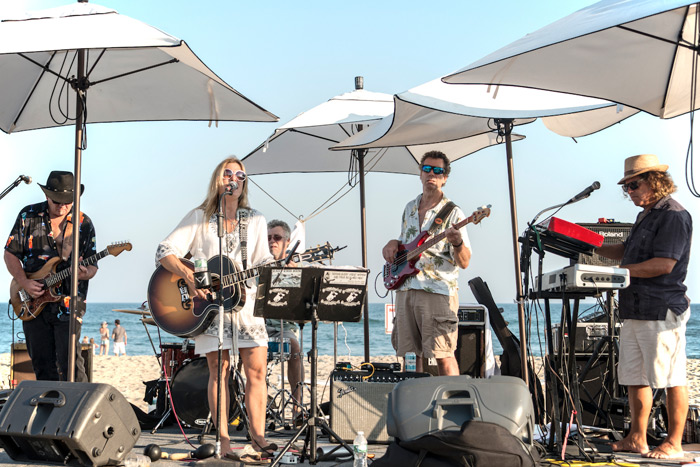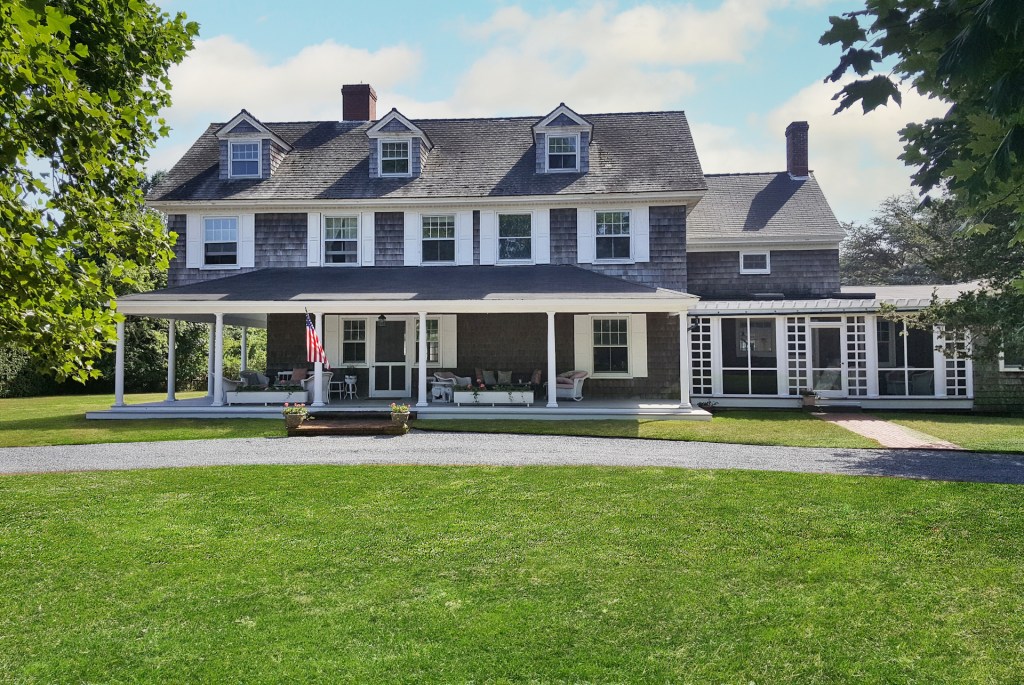The Sound of Music: Will Montauk Go Quiet This Summer?

The rumor is that all amplified, live musical performances in Montauk must come to an end at 9 p.m.—that it is a new town law, and because of that, all the nightclubs in Montauk will either have to revert to acoustic guitar and sing-a-longs or shut down altogether. As a result, all those who have contracted to perform in Montauk this summer will have nowhere to play and, as one wag wrote in a blog, the town “will have got what they wished for.”
The rumor is not true, although pieces of it are. And I would herewith like to straighten it out.
The Town has a longstanding law that states that all live, amplified performances outdoors in the town must cease after 9 p.m. Certainly this makes sense in a community where residences and clubs are in the same neighborhood. But the law only pertains to music played outdoors. Amplified performances can continue indoors, so long as the decibel level is below a measurable shrill and booming volume. And outdoor amplified performances can also be allowed for special occasions. Permits for those occasions—weddings, family reunions etc.—are available at Town Hall based on what the occasion is.
The goal of the town is to have musical performances live side-by-side with homeowners who would like to not be kept up all night, and that is not an unreasonable thing to ask.
It is true that at the Surf Lodge in Montauk, outdoor performances in the next few weeks have been cancelled. (The popular weekly Nancy Atlas concerts were moved to Baron’s Cove in Sag Harbor.) The reason is the actions of the State Liquor Authority (SLA). Turns out that when a club gets a permit to sell liquor, it is necessary, if they want to pair the selling of liquor with live music, that their liquor license includes classification as a live music venue. In going over Surf Lodge’s liquor license this spring and noting that music is played there, the SLA pointed out that Surf Lodge is not classified that way. The SLA therefore told Surf Lodge that they would be subject to charges if they had live music on the premises there with the current license. The Surf Lodge decided that they should not do that. And so upcoming performances were cancelled.
Getting that part of the liquor license approved takes an investigation by the SLA, which can take several weeks to complete.
I believe the Town first learned of this when the SLA held a hearing about Surf Lodge. Regarding summonses from last year, the Town said that Surf Lodge asked them to help, and the Town told Surf Lodge that if they took care of the noise charges and other summonses from last summer, they would consider helping. The Town can help by giving a good report to the SLA as they consider it. It’s not clear if Surf Lodge has yet taken care of last year’s charges—they were pending in town justice court as of this writing—but that is not an unreasonable thing to ask.
Apparently, now, all the other restaurants and bars in Montauk are taking a close look to see if their SLA permits allow live music. If their permits don’t, they too will likely stop live performances until things are straightened out.
In other words, this whole thing will be resolved one way or another in the next few weeks as the various venues with a liquor license problem apply to add the live music part to their existing licenses. All of this does, however, speak to the larger problem in Montauk, which is basically that five years ago there were three venues in Montauk that played live music at night, while today there are about 10.
In a city, even a small city, this is not a problem. In a tiny summer resort village, however, this could be a big problem. Montauk merchants were happy when the village was “discovered” by the Hamptons with the addition of Surf Lodge and Navy Beach all those years ago. Music is good. Fun is good. But when it gets out of hand and Montauk begins to assume an identity more like a drunken-wet-T-shirt-and-piss-in-the-alley sort of place, it is the job of the Town to tighten up the law and for the enforcement agencies to issue summonses. I can’t imagine anyone, even the club owners, objecting to that.
Last Thursday, The New York Times published a huge front-page article in their Style section called “Summer in the Hamptons” and, among other things, mentioned the annual changing of the guard where old places are gone and new ones have come in. In Montauk, it noted, the noisy Ciao by the Beach is now a Mediterranean-style restaurant called the Arbor. The venerable Duryea’s, which used to be a lobster eatery with paper plates and plastic tables, is in its new incarnation a spot with not only the usual lobsters in all forms, but also oysters and sushi served on teak tables with bamboo plates. Rowdy Ruschmeyer’s is “switching things up” says the Times, pairing the restaurant with the East Village bistro Virginia’s and the chef Savannah Jordan. Then there is Gurney’s, the keystone venue in Montauk, all re-imagined as a romantic and gorgeous high-end resort.
This sort of thing means higher prices and a more well-mannered clientele. Nothing against the rowdies personally, but there are places to go for that stuff. It’s just not for here. In the long run, it cheapens a place and makes it shabby and unhappy for everyone.
There was a time, about 30 years ago, when the Village of Westhampton Beach appeared to be getting overrun by groups of bikers from Long Island’s western end. A turning point came when a nightclub called Club Marakesh became the venue for a racially motivated assault in its parking lot late one Saturday night.
The Town fathers—the mayor, the religious leaders, the merchants—met and they decided they needed to do something dramatic to get this trend to stop. The next year the Westhampton Beach Performing Arts Center was born. In addition, the village hung great baskets of colorful flowers on all the light poles up and down Main Street.
The bikers came roaring down Main Street on Memorial Day, had a good look at the flowers, said “what the f—k,” and were gone for good.



